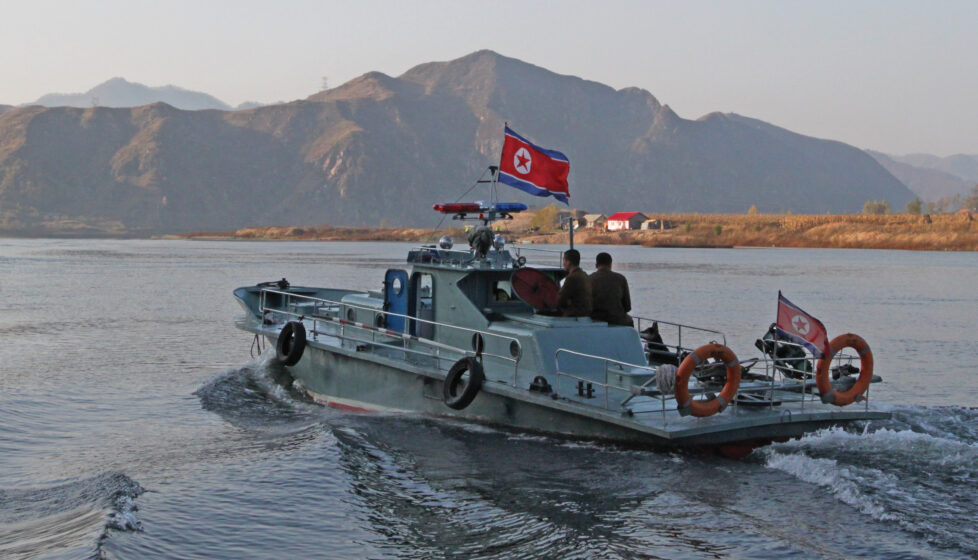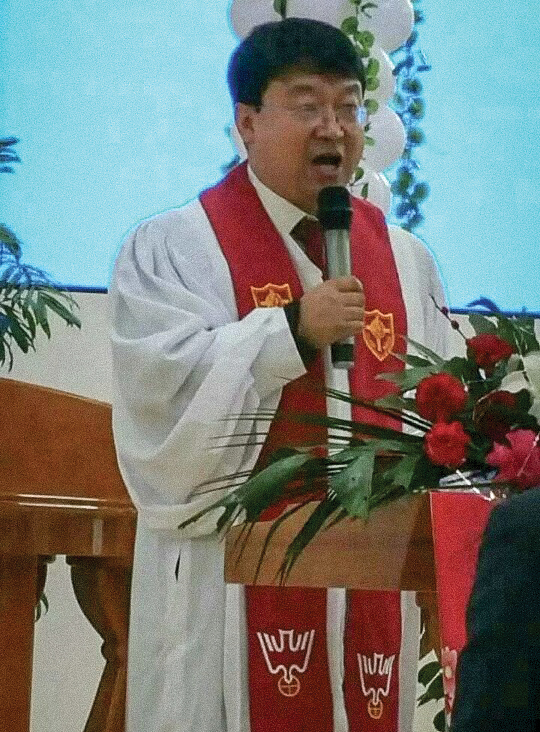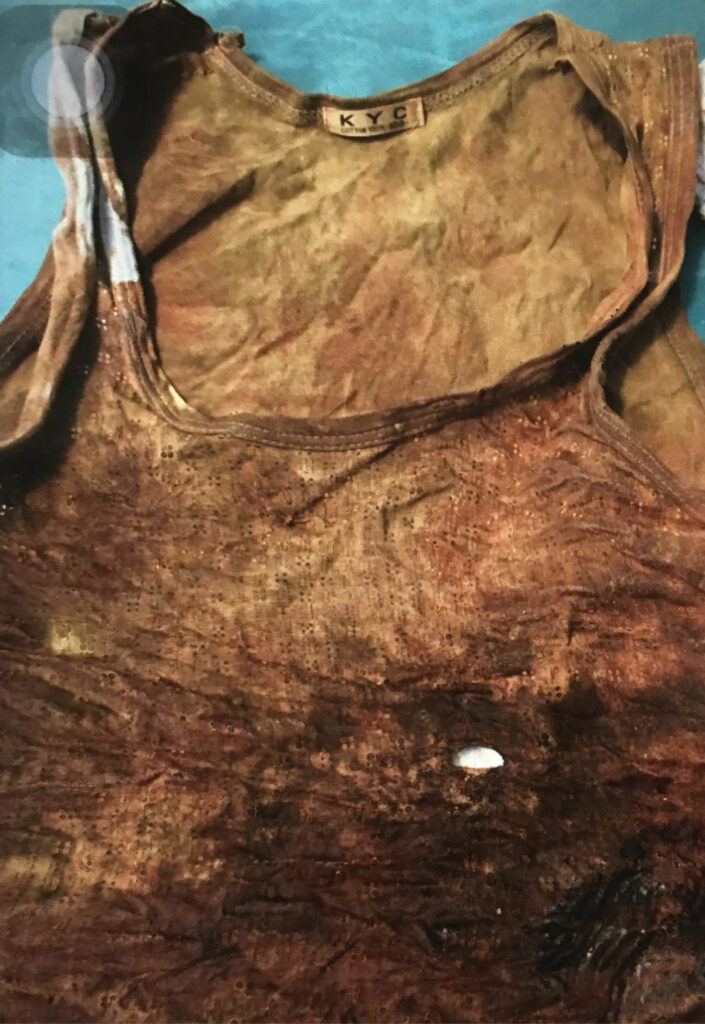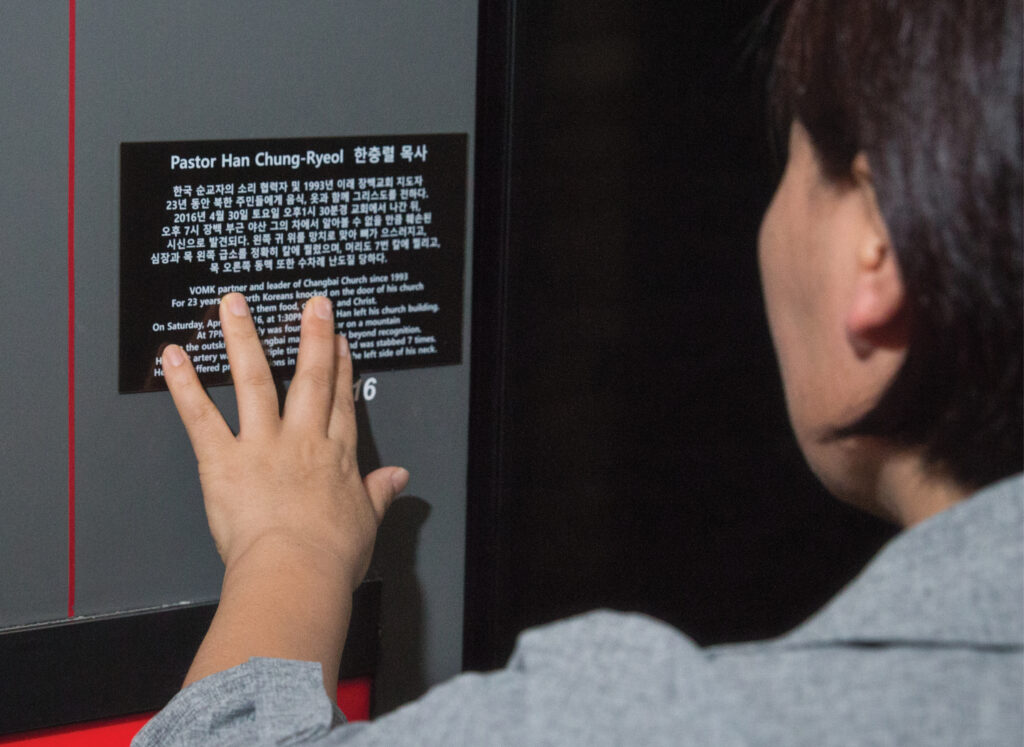Pastor Han Martyred by North Korean Assassins
North Korea

When Pastor Han answered a phone call one afternoon at his church in Changbai, China, near the North Korean border, his wife saw no particular reason for concern.
She knew, however, that for several months both Chinese police and South Korean intelligence officers had been warning her husband that he was at the top of a North Korean “hit list.” Pastor Han, his wife and other Christian leaders had even agreed on security precautions designed to protect him while allowing him to continue his ministry to North Koreans. For example, he stopped driving on the border road, he didn’t leave his house or the church alone, and he kept a very strict schedule.
But after receiving the phone call that afternoon at church, the pastor uncharacteristically disregarded those precautions and left the church alone. His body was found that evening in a rural area along the North Korean border.

North Koreans on the Doorstep
Pastor Han Chung-Ryeol and his wife arrived in the Chinese border town of Changbai in 1993. The 26-year-old recent seminary graduate had been called to Changbai to lead a small church of ethnic Korean Chinese, who make up about a quarter of the population in that part of China. Since the pastor himself was a Chinese citizen of Korean ancestry, he seemed a perfect fit for the position.
Although the pastor and his wife knew they would be ministering to ethnic Koreans in Changbai, they never imagined that they would end up ministering to North Koreans. Border controls between China and North Korea were surprisingly relaxed in that area, with North Koreans and Chinese routinely crossing and re-crossing the border to visit family members living on either side.
Both China and North Korea were poor before the 1990s, but North Korea was plunged into even deeper economic hardship in the early 1990s as a result of inept leadership and the dissolution of the Soviet Union, upon whom the country had depended for economic support. The period from 1993 to 1995 in North Korea is referred to as the Arduous March because so many people were starving.
While exact numbers are difficult to confirm because of North Korea’s secrecy, experts estimate that between 300,000 and 1.2 million North Koreans died during the famine. Those who made it to China were desperate for help, seeking food, clothes and medicine.
Pastor Han and his wife had not moved to Changbai with the intent of helping North Koreans, but they could not turn away those who soon came knocking on their church door. Although many North Koreans originally came to China looking for help from distant relatives, they were often disappointed to learn that their relatives didn’t have the resources to help. It quickly became common knowledge among North Koreans that they could find help at the buildings with crosses on top.
“It doesn’t matter if we wanted to do North Korean work or not,” Mrs. Han said, “they just keep coming. When you see them you can’t get away from doing this ministry. When they come to China they are really starving; that is why they come. They don’t have clothes. When you meet them face to face there is no way you don’t want to do anything.”
Together, the Hans poured themselves into helping North Koreans who wanted to return to North Korea after receiving help. Pastor Han’s philosophy was clear: “He taught North Koreans that they should be the ones to receive the gospel and go back to their country,” Mrs. Han said. “They should be the ones who have a mission to make North Korea a light, to become a light to the world.” While the Hans knew they were taking some risks to help the North Koreans, they didn’t fully understand the possible consequences until 1998.
The Suspicious Act of Love
Mrs. Han was arrested inside North Korea in 1998. “It was a legal visit,” she said. “I got a visa to visit North Korea. I wanted to help orphanages there, so I brought rice.” In addition to helping in orphanages, Mrs. Han also visited and brought rice to some of the North Koreans they had shared the gospel with in China. But in a culture where people generally don’t help each other without personal incentive, her act of good will was viewed with suspicion. And in North Korea, suspicion leads to arrest.
She was held in solitary confinement for 60 days, not knowing how long she would be imprisoned. “I felt like I was going to die there in the beginning,” she said.
Mrs. Han faced repeated interrogations. “They kept changing the investigator,” she said, “asking the same questions over and over again.” The investigators also lied to her, telling her that her husband was in the next room. But Mrs. Han had no new information to give them. They already knew everything she had done in North Korea and every person she had met.
After two months, the North Koreans moved Mrs. Han from solitary confinement to a regular prison, where she received very little food. The weather was turning chilly and she had only the summer clothes she had brought with her in July, but God provided for her in a surprising way. Mrs. Han met a young orphan at the prison who had visited them in China. Because he was homeless, he had worn several layers of clothing to keep warm, and he was happy to share his with the woman who had helped him in China. His sacrifice was made greater by the fact that orphans often paid for things with clothing. The boy gave Mrs. Han his sole means of providing for himself.
Finally, 72 days after her arrest, North Korean soldiers drove Mrs. Han to the border and released her to Chinese authorities. “My daughter didn’t recognize me,” she said. “She didn’t come to me; she just cried.”
After Mrs. Han’s ordeal in North Korea, she and her husband decided that for the sake of their children and the protection of the other spouse, only one of them should be involved in the North Korean work. Mrs. Han would oversee the church in Changbai while Pastor Han focused on teaching and training North Korean believers. If her husband was ever arrested, she would be able to care for the children. In addition, she wouldn’t be able to divulge information to authorities because she wouldn’t know specifics about her husband’s work.
Word Spreads Along the Border
North Korea began to tighten its control of the border in the mid-1990s, and fewer Chinese churches were willing to help North Koreans because of pressure and punishment from the Chinese government. Pastor Han’s church was the exception.
Word spread among North Koreans that if you needed help, you should go see Pastor Han. He provided clothes and food to his visitors, before carefully evaluating them for several days. If he believed a person was truly seeking to know God and was not a spy, he would cautiously begin to share Bible stories. After fully assessing the person’s character, he would share the gospel in its entirety and begin to train the new believer. New Christians would then join small house churches that Pastor Han maintained along the border and undergo several months of intensive training.
The pastor took a conservative but systematic approach to spreading the gospel in North Korea, training new believers and then encouraging them to return to their own country. “Pastor Han would have them invite their closest relatives or friends … to China,” a VOM worker in the region said. Urging the North Koreans to share the gospel themselves in North Korea was much too dangerous.

VOM workers began partnering with Pastor Han after meeting him. Supporting border missionaries like Pastor Han was (and still is) the most effective way of getting the gospel into the closed nation. VOM provided funds to support training, housing and food for the North Koreans under Pastor Han’s leadership. In addition, VOM workers became his trusted friends and a source of encouragement while he carried out a very difficult, stressful and dangerous work.
Pastor Han took a risk each time he helped a North Korean who crossed the border into China, but his work was also very rewarding. In 2012, a woman who made her living smuggling various goods into North Korea came looking for the pastor. While “Jung-ah” was in prison in North Korea for smuggling, another prisoner had told her about God, using the term Hananim, meaning “One God.” Since North Koreans generally use the word hanulnim, meaning “sky god” or “god in the heavens,” Jung-ah became curious about the One God. After her release from prison, she crossed into China and went looking for Pastor Han.
When the pastor first met Jung-ah, he took her to a safe house where he taught other North Koreans. After several days, he determined that she was “very smart and she had a good heart,” Mrs. Han recalled. The pastor taught Jung-ah the Bible for three months, and her life was transformed. She left her smuggling work and began to help Pastor Han share the gospel with North Koreans.
Eventually, Jung-ah became one of the pastor’s top workers in North Korea, sharing the gospel with more than 70 people and leading them to Pastor Han for further discipleship. Her work was cut short when in 2014 another of Pastor Han’s disciples, Deacon Jang, was kidnapped in North Korea and mercilessly interrogated, ultimately giving up some details of Pastor Han’s ministry.
Another man Pastor Han led to the Lord, “Sang-chul,” was drawn to the pastor after hearing from him in North Korea. “The thing I really wanted to know from him was why he helped North Koreans, because it was very dangerous for Pastor Han to help North Koreans there,” Sang-chul said. “Pastor Han unconditionally loved us and treated us well with love. I felt his heart. The more I met Pastor Han, I felt more his heart came from the Lord; without God he wouldn’t help me. That is why I realized Christianity is a real religion.”
Sang-chul could understand showing love to someone with the expectation of receiving something in return, but he had never seen someone like Pastor Han who gave to others for no apparent reason. “They helped us from a genuine heart even though they put themselves in danger,” Sang-chul said. “They didn’t ask anything from us.”
After spending five months with Pastor Han, Sang-chul placed his faith in Christ. “From that time we made a group, … and we received intensive training,” Sang-chul said.
Four years after meeting the pastor, Sang-chul is still full of praise for his mentor. “He was a truthful man because China and North Korea discriminate against Christians,” he said. “But in the middle of those kind of situations he has love; that is why he is different. You can tell that he sacrificed his life for Christ. Secret agents in North Korea have been planning to assassinate him for the past 10 years. In the middle of that dangerous situation, he has been doing God’s work for decades; that is really special.”
Target of Assassins
While Pastor Han knew his work was dangerous, he understood that those he was serving took even greater risks. At least four people he led to Christ were executed by the North Korean government, some were arrested and never heard from again, and others remain in North Korean prisons.
When Deacon Jang was arrested in 2014, Pastor Han called some of the other North Korean believers to warn them. “We are ready to die for Jesus,” they told him.
Both Chinese and South Korean intelligence officers warned Pastor Han that he had become a target of the North Korean government, and he and his wife sometimes wondered if they should give up the work. “Always we had to … be careful,” Mrs. Han said. “We were thinking to leave there several times, but God stopped us.”
After being warned by authorities, the couple made plans to send their two children away to school and took additional precautions for their own safety.
“We never thought about it like, ‘This is dangerous, we have to stop,’” Mrs. Han said. “We thought that the worst thing that could happen was that he could get kidnapped.”

On April 30, 2016, Pastor Han received a phone call at about 1:30 p.m. Mrs. Han didn’t hear who her husband was talking to, and she left for home without asking her husband who had called. Around dinner time, she became concerned because her husband hadn’t called home as he normally did. When she couldn’t reach him by phone, she called the police.
By 7 p.m. that evening, they had found his body. Pastor Han was found in his car, in a remote area near the North Korean border. He had been stabbed in the heart, and an artery in his neck had been slashed — a method commonly used by North Korean assassins. In addition, he had seven deep wounds to his head, which showed the rage of his killers.
Pastor Han’s Legacy
Mrs. Han continues to lead the church that her husband started in Changbai, but she has had to stop all work with North Koreans. Since her husband’s death, she has had difficulty trusting North Koreans. She even changed her phone number after meeting two North Korean believers he had led to Christ. “Any North Korean I see, they look like a spy to me,” she said. Mrs. Han said the person who lured her husband away from the church that day was most likely a North Korean who the pastor thought was a Christian. She thinks it may have even been a member of his inner circle.
“Since Pastor Han was martyred, I started hating North Koreans,” Mrs. Han said. “I didn’t even see North Koreans at all, but after I visited South Korea I saw the news about North Korea and I came to realize that Kim Jong Un, the leader, has to be transformed first and the country will be transformed. I came to pray for Kim Jong Un and the country,” she said.

For now, she plans to do all she can to help the Changbai Church recover from its great loss. “I just want to focus on church,” she said, “to get congregation members back because so many people left.”
The VOM worker who knew him best explained what his loss means to the Christian community in Changbai as well as to evangelism in North Korea. “He was a wise man,” the worker said. “He never failed to start each day in morning prayer. He said that if he didn’t pray, he couldn’t do the work. Pastor Han was devoted to helping North Koreans enter the kingdom of God, not the kingdom of South Korea. He insisted the North Koreans that he helped should return to their homes and their family and their country, not abandon them. He told us, ‘Whether this person dies or not, they have to go back. If they die, God will honor them. But if they go to South Korea, they will turn their backs on God.’”
A North Korean Christian sent this note to a VOM worker after the pastor’s death: “When I heard that [Pastor Han] died a miserable death, I thought you would hate North Korean people and probably never see North Korean people again. However, you still remember and support us. How I appreciate you! … I keep praying to God how Pastor Han taught us to pray, and I feel that God really loves us. I thank God to help us, not to give up on us in the midst of the difficulties.”
The seeds that Pastor Han planted will bear fruit for many years. North Koreans who met him will continue to share God’s love with their friends and family inside North Korea, and God’s light will continue to dissipate the darkness.


 Guide
Guide